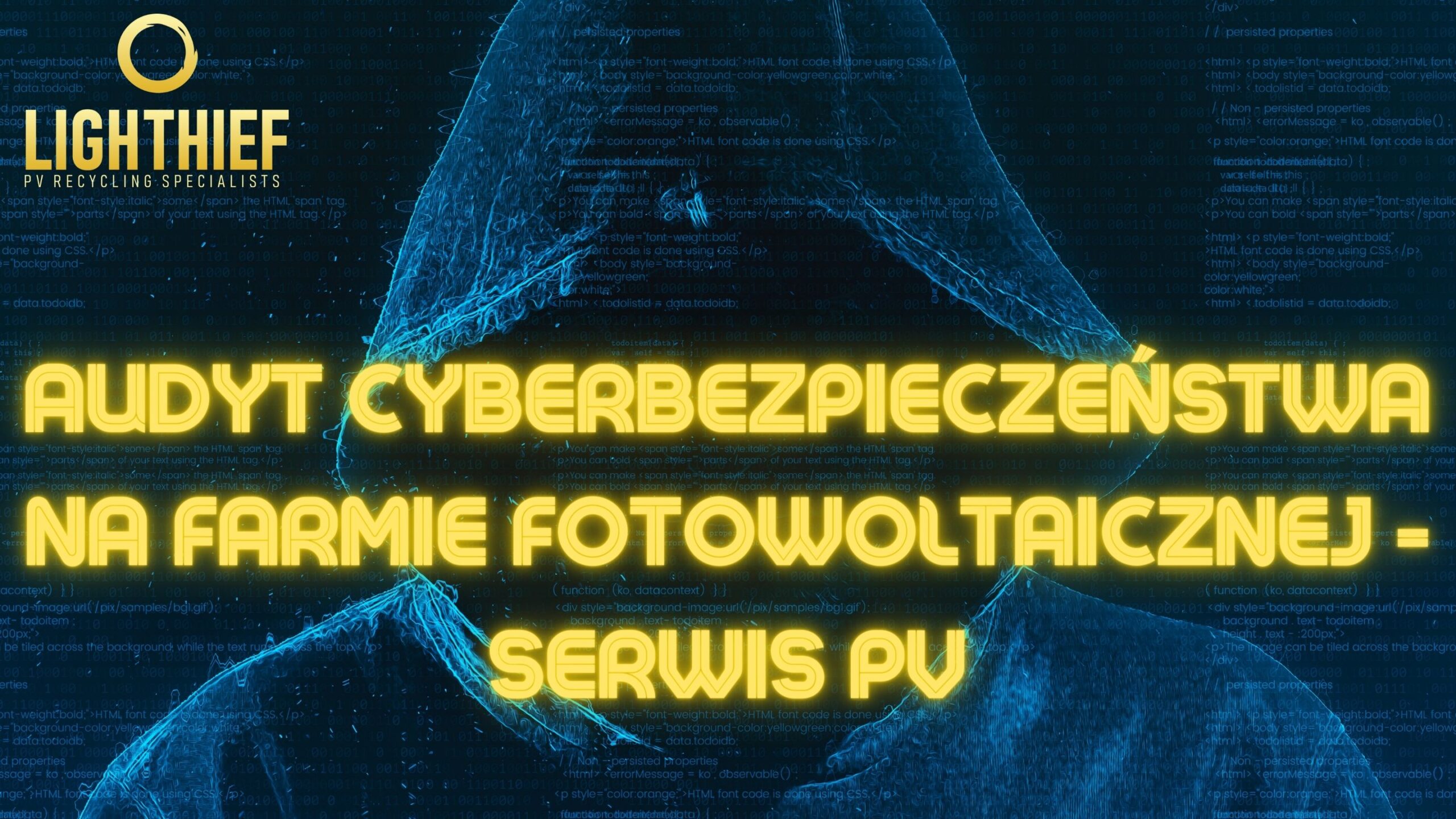Cyber security of photovoltaic investments
Introduction to Cyber Security at Photovoltaic Farms.
In an era of increasing numbers of photovoltaic installations that generate significant amounts of renewable energy, the relevance of cybersecurity in this sector is becoming increasingly urgent. Photovoltaic farms, as key elements of critical infrastructure, are increasingly the target of cyber-attacks that can lead to major power disruptions and large financial losses.
Why is cybersecurity crucial for PV farms?
- Operational Significance: Photovoltaic farms are automated and remotely controlled using SCADA (Supervisory Control and Data Acquisition) systems. These systems monitor and control the operation of photovoltaic equipment, and their compromise can lead to the malfunction of the entire farm.
- Availability and continuity of operation: Photovoltaic farms must continuously supply power to the grid. Ransomware or Denial of Service (DoS) attacks can disrupt this continuity, temporarily shutting down power production.
- Data integrity: Production data is key to optimizing the performance and financial management of PV farms. Manipulated data can lead to wrong operational and financial decisions.
- Privacy and security: Photovoltaic farms generate and store a large amount of data that may contain sensitive information. Their leakage could violate users’ privacy and damage the company’s reputation.
Security strategies and technologies. Cyber security of photovoltaic investments.
Implementing effective cyber-security measures requires a comprehensive approach that includes hardware, software and operational procedures:
- Physical and network security: This includes the use of firewalls, intrusion detection and prevention systems (IDS/IPS), as well as network segregation and VPN communication security.
- Regular audits and updates: Systems should be regularly updated and subjected to security audits to detect and address potential vulnerabilities.
- Staff training: Employees should be aware of potential cyber threats and how to recognize and respond to them.
- Use of advanced analytics and AI: These systems can help detect unusual patterns of activity that may indicate an attempted cyberattack.
- Incident response plan: Every PV farm should have a cyber incident response plan developed and regularly tested.
Cases and lessons from the past
An example from September 2020, when a series of ransomware attacks affected energy infrastructure in Germany. This showed how important it is to properly secure photovoltaic systems. The attack crippled the operation of local photovoltaic farms, resulting in a temporary drop in energy production and financial losses.
Summary
Cyber security for photovoltaic farms is no longer an option, but a necessity. Technological developments and the increase in the scale of cyberattacks are forcing energy companies to continuously adapt and invest in modern security solutions. Ignoring this aspect can lead not only to financial losses, but also to long-term energy supply problems, which in a broader context affects the stability and energy security of entire regions.
Are you planning to build your photovoltaic farm or looking for an O&M service company?
Do you want to purchase a photovoltaic or wind farm project and need an efficient and professional audit / due diligence?
Are you looking for a photovoltaic panel recycleror cleaning company for photovoltaic installations and farms?
If you are ready to act,
then so are we!
